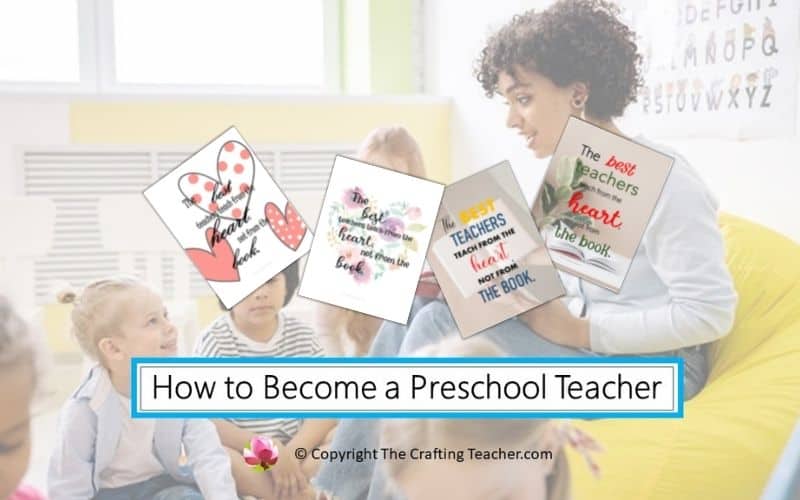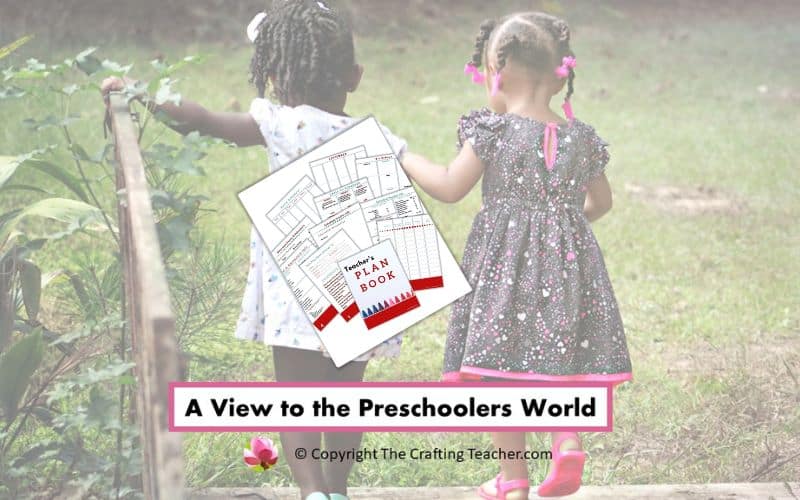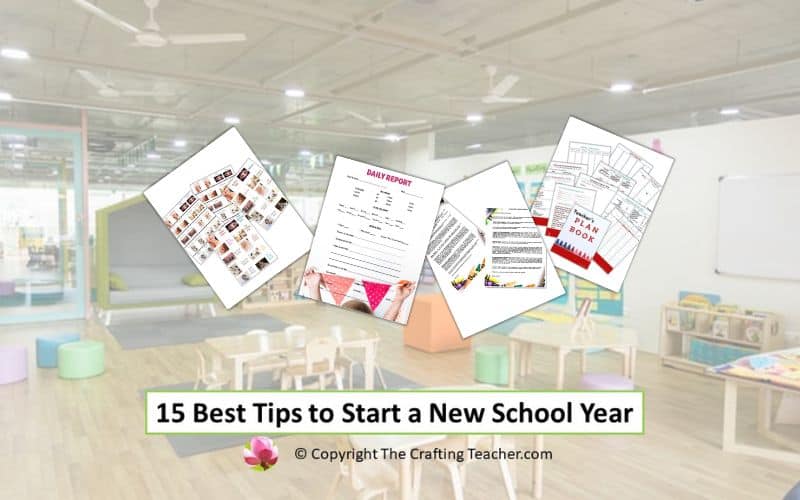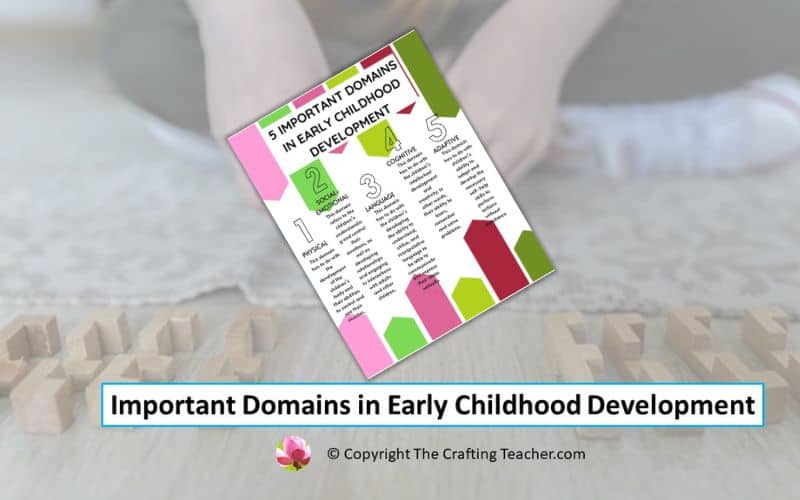How to Become a Preschool Teacher
Affiliate Disclosure: “This post contains affiliate links, which means I receive a small commission, at no extra cost to you, if you make a purchase using those links.”
Many people think that a preschool teacher is only a person that has a degree, a state teaching certification, and works with young children between 2 to 5 years old in public or private schools. They don’t think that people that work in child care centers are preschool teachers, and this is true to some extent, because not all daycares are educational centers, but a true preschool learning environment cannot function the way it’s supposed to do without well-trained preschool teachers.
By definition, a preschool or pre-Kindergarten teacher is a person that provides education for children between the ages of 3 and 5. It requires to love being with young children, being happy when interacting with them, and willingness to give those children the foundation to develop their knowledge and creativity while preparing them for kindergarten. These teachers can work at daycare centers, public or private schools, religious institutions, Head Start, and other programs.
Skill Requirements
I want to make it very clear that preschool teachers are not babysitters. As a matter of fact, preschool educators get insulted when they are called something different than teachers. Not everybody is cut off for this job. It takes a special person to be a successful preschool teacher.
Some of the necessary skills of preschool teachers include:
- Possess love, kindness, and tons of patience.
- The ability is able to communicate effectively with parents, coworkers, administrators, and children.
- Respond to her children’s emotional and physical needs.
- Be able to create and develop appropriate lesson plans for this group of young students.
- Inspire trust in her young learners.
- Be able to incorporate learning into play.
- Willingness to work with other teachers, since it is common to have more than one teacher in a preschool classroom.

Preschool Teacher’s Common Tasks
Let’s remember that preschool teachers should foster an environment in which children can feel free to explore the world around them, found out what are the things that interest them, and ask tons of questions. In other words, preschool teachers must provide a rich learning environment where the children can develop and get ready for kindergarten. Because of this, some of the common tasks are:
- Teaching shapes, colors, numbers, letters, pre-reading, pre-writing, and counting.
- Teaching self-help skills, such as going to the bathroom, and cleaning after themselves.
- Teaching social skills such as listening, sharing, working in groups, tolerance, cooperation, and respect for boundaries and a diversity of backgrounds and cultures.
- Teaching problem-solving.
- Introducing art, science, music, and building blocks of math and literacy.
- Monitoring students’ progress.
- Doing evaluations and keeping parents up-to-date on the development of their children.
- Planning and developing lesson plans using child development curricula.
- Creating schedules that incorporate play, learning, and rest.
- Keeping records of behavioral, emotional, and/or developmental issues.
- Communicating with parents and caregivers the progress, routines, and each child’s interests.

Preschool Teacher Education Requirements by State
The requirements for a preschool teacher to be able to work not only vary from state to state but also vary according to the place where she or he wants to work, whether it is a childcare center or a public school.
Child Care Center Setting Requirements
The requirements for becoming a child care center’s teacher could vary depending on the state, but all of them require:
- A minimum of a high school diploma and child care training.
- A cardiopulmonary resuscitation (CPR) and first aid certification.
- National background checks of criminal history records (which may be done with fingerprints), child abuse and neglect registries, and sex offender registries.
- Annual ongoing training hours.
In my case for example, as a director of a high-performance preschool, the minimum requirement I have to hire a new staff member is to have a minimum of a National Child Development Associate (CDA). Of course, this also means a higher salary range, but it also provides the school with better qualified and trained staff, which reflects in a better quality of the education we provide to our young learners.
To find out more information about the requirements to work at a child care center in any state you can visit the National Database of Child Care Licensing Regulations which includes contact information and websites for state licensing departments. On that website, you can choose your state and view, download, and search the child care licensing regulations that apply to child care centers, family child care homes, and other licensed child care programs.
Public School Setting Requirements
These requirements might vary depending on the state you are located in, but there are some common ones among all of them. These common requirements are:
- Complete a state-approved bachelor’s degree or higher in an early childhood education certification program or similar.
- Obtain a State Teacher Licensure Certification.
- Get experience working with young children.
- Join a national and/or state preschool teacher organization.
You can find out more information about the requirements to work in a public school in any state HERE.
Preschool Teacher’s Salary
A person that decides to become a preschool teacher for the money will have a huge surprise, at least here in Florida. In my opinion, this career is one of the most important, emotionally draining, and rewarding as far as small children are concerned, but also one of the worse paid. The salary might vary according to the setting and the teacher’s credentials, but the average is around $29,000 per year. The job has a high turnover rate since many preschool teachers leave the field to take care of their own families or change careers for better-paid ones.
Preschool teachers who have a bachelor’s degree, an associate’s degree, a National Child Development Associate (CDA), or Child Care Professional Credential (CCP) certification may have an advantage over those that only have the 45 hours of training required to work in a child care center.
Here in Florida, for example, you cannot teach the Voluntary Pre-Kindergarten (VPK) in a child care center without a minimum of a CDA, and to do the same in a public school you need a minimum of an Associate Degree and a Florida teacher’s certification. I think it is a good thing. We have to adapt to the evolution of times because, if you pay attention, you will notice that the children being born nowadays are way too advanced in comparison to the ones born 10 or 15 years ago; therefore, we teachers need to be better trained to be able to provide these children the level of education required to catch up with the demands of the current reality.

Additional Resources
I’m sure there are multiple places in your particular state where you can find information about how to obtain the credentials you need, but I wanted to provide you with three of the most important institutions where you can find all the information you need regarding the CDA credential. These are:
- The National Association for the Education of Young Children (NAEYC): This website provides content, resources, discounts, and networking opportunities for its members.
- The Child Development Associate (CDA) Credential: this website explains how to obtain the CDA credential.
- National Early Childhood Program Accreditation (NECPA) CCP Credential: This website explains how to earn the Certified Childcare Professional (CCP) credential.
- The Council for Professional Recognition: this website is a leader in the credentialing of early childhood educators worldwide.
Last Thoughts
I taught elementary children to adults all my life. Until 16 years ago I had no intention to work with preschoolers or any clue of what it meant until I came to Florida. While I was already active in the Florida School Board Department but waiting for Tallahassee to approve my teaching credentials, I got a job as a 4-year-old teacher in a child care center.
I was one of the first teachers who started teaching Voluntary Pre-Kindergarten in Florida (VPK) back in 2005, and honestly, I got hocked. I discover what a huge responsibility it is, but also how special is to be able to help these young children develop the necessary skills to be successful in Kindergarten and beyond, and also how extremely rewarding is to see when they do it.
You never get bored because every day is different, depending on the needs and interests of your particular students. They will keep you on your toes asking millions of questions, making you come up with ideas to teach them basic mathematics, pre-reading and pre-writing, and how to develop their motor and social skills among other things, in a fun and engaging way that will keep them motivated and interested.
But the most important part, the part that I think is the reason that people like me choose to switch from higher grades to this one, is the unconditional love these young children give you, and the rewarding feeling you get when you see their wide-open eyes sparkle when they learn a new skill. Therefore, if you are choosing this profession for the money, this is not the field for you. Choose something different that will get you where you want to be and don’t do a disservice to these young souls.
Being a preschool teacher is a labor of love, not money, and a huge responsibility to do it right. One of my favorite quotes says it all: “The best teachers teach from the heart, not from the book”. I created several free printables with this quote as a gift to you. Just click on the link below and print out your favorite one.
I hope all this information gives you a better understanding of what is a preschool teacher, and what is required to become one, so you can take an educated decision in choosing this profession or not. Good luck!
Be happy, safe, and creative. I wish you well.
Love,

P.S. Please let me know if you have any questions, or if you need anything else. Nothing will make me happier than to help you in any way I can. Remember that my door is always open.







